“Know your history. But don’t be cliché and try to do what the guys in Chicago did in the ’60s. We don’t need more of that”: Josh Smith is on a mission to save the blues – he names 10 guitarists who are pushing the genre forward
The defender of the blues faith names the players bucking the clichés and preventing the genre going stale, and explains why anyone who says Joe Bonamassa can't play the blues is “full of s**t”
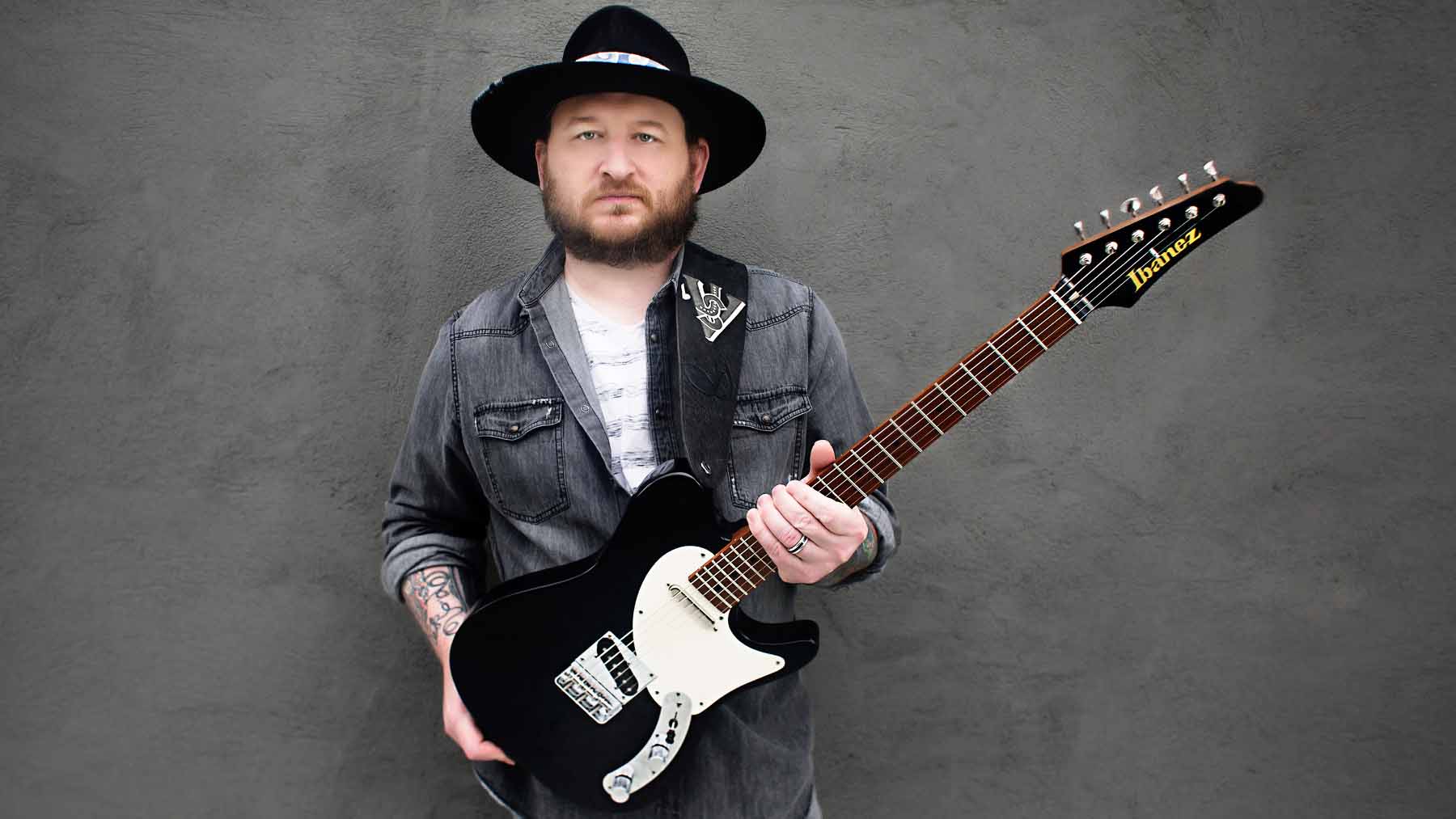
All the latest guitar news, interviews, lessons, reviews, deals and more, direct to your inbox!
You are now subscribed
Your newsletter sign-up was successful
GUITAR SHOWCASE 2023: As far as contemporary blues goes, few bring the heat as hard and heavy as Florida native Josh Smith. His playing is steeped in history yet pushes the genre forward, and given his perpetual support of young musicians, Smith has proved himself one of modern blues guitar's most valuable players.
Having been a professional guitarist since he hit the road at 16 with his band, the Rhino Cats, Smith has seen and heard it all. But still, his inventive nature leaves him searching for progression within the genre he's long called home, resulting in an endless search for pools of new inspiration.
“The most important thing for me is to recognize the need to keep things moving forward,” Smith tells Guitar World.
“The history is never going anywhere, and you'll always have players who play exactly like Otis Rush, B.B. King and Robert Johnson. And while it's important to celebrate the legacy, I'm more interested in players trying to do something with the blues that keeps it fresh while still respecting it.”
“Show me that you've done your homework. Know your history. Have respect for the blues. But don't be cliché to where you're going out there and trying to do what the guys back in Chicago did in the '60s,” he continues.
“That stuff was and is important, but we don't need much more of that. So, as far as guitar players go, I've been fortunate enough to produce a lot of young ones who are striving to create something new. There's a lot of great players out there who are doing their thing, mixing in their influences and following their inner voice.”
Smith has a keen ear for guitarists who distinguish themselves from cookie-cutter players. But how does Smith keep his own playing on top?
All the latest guitar news, interviews, lessons, reviews, deals and more, direct to your inbox!
“What keeps me inspired – and this has always been a starting point – is the need to improve daily, weekly and monthly. I've always felt like I should be growing. And I'm always focused on learning something new and hopefully being better than I started.”
It doesn't matter if I'm producing records, arranging, improvising, or just playing around with my guitar; the goal of improvement always drives me
But continuously searching and forcing himself to improve doesn't mean that he's bored with what he loves, either.
“I still just love to pick up the guitar,” Smith says. "It still makes me happy, and I still pick it up daily. I've learned a lot, and there are things that I'll always do, but what really drives me is the want and the need to be better.
“It doesn't matter if I'm producing records, arranging, improvising, or just playing around with my guitar; the goal of improvement always drives me. I'm always pushing to get closer to the absolute goal of expression. Obviously, I'm inspired by what I hear, but the need to grow keeps me moving forward.”
During a break from the action, Josh Smith dialled in with Guitar World to name 10 contemporary blues guitarists who are pushing the genre forward.
1. Larry McCray
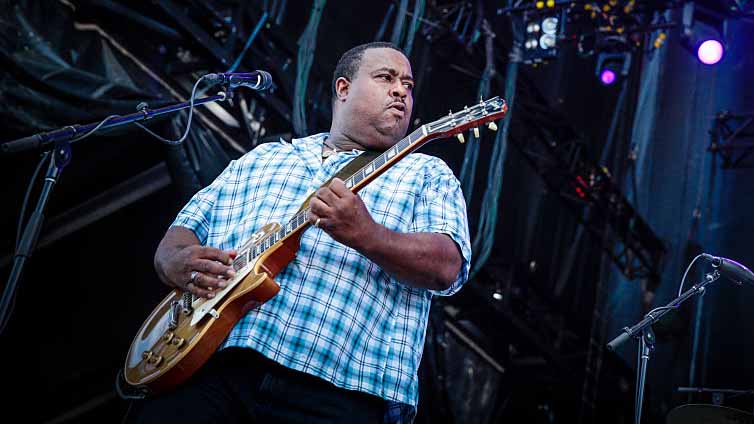
“Larry is much older than me, but he's as contemporary as it gets. The best thing about him is that he's so real and that he's a natural link between the past and the present. Larry is the blues. He's everything that makes the blues great, all rolled into one. He's an incredibly great player, singer, and songwriter. I really do feel that Larry McCray should be headlining every blues festival in the world and winning every contemporary blues Grammy there is.
“It's a shame that people aren’t paying attention to him. We made a record with him, and I hoped it would get him out there, but it didn't have the massive effect I hoped. But it did get him back on the road, so that's good. I just can't believe people don't buy his records and go, 'Wow… this is the best new blues there is.' It bums me out that people don't.”
2. 'King' Solomon Hicks

“There's a young man from New York named Solomon Hicks, and I think he's a really good guitar player and singer. He's taking traditional blues, mixing it with jazz, and really finding his voice.
“I recently did some shows with him, and I was impressed because I could tell he had a great vision for what he was doing. Some people just don't understand the whole thing, meaning how you present yourself, the songs, and the vibe.
“Solomon is a smart player who knows exactly what he's doing and has a plan. He also plays in a very traditional way, super-clean and straight into the amp. And it's the same way he presents himself – super-traditional and always looking very smart with a suit and tie.
“I am very impressed with his vision for what he wants to accomplish. Finding your voice as a player is very important, rather than just being a jukebox. He's finding a way to separate himself, and I was very impressed by that.”
3. Kirk Fletcher
“Kirk Fletcher is one of the best blues guitar players on the planet. He's my best friend; everybody knows that Kirk and I are super-tight. We've known each other for a long time and have so much in common. We're around the same age, so we both grew up in the heart of the Stevie Ray Vaughan era but became obsessed with real blues.
“We did our homework, learned history, and got really deep into it. But Kirk also listens to a lot of other music like jazz, soul, R&B, funk, and all that stuff. So, he's a very diverse player, more so than people realize. So, Kirk is my best friend, but as far as playing guitar, especially the blues, he's great. I'm not saying Kirk is the best guitar player on the planet, but he's great.
“If you said to me, 'Hey, I'm gonna pop a cap in your ass unless you show me some of the best slow blues on the planet,' I'd show you Kirk Fletcher because Kirk can cut right to the heart of it with his playing. When I listen to Kirk, it's the same feeling I get when I listen to Albert King, who I still listen to daily. But I'm not saying Kirk copies Albert King, but that feeling separates Kirk from most people out there. It's just something he's born with.”
4. Joe Bonamassa
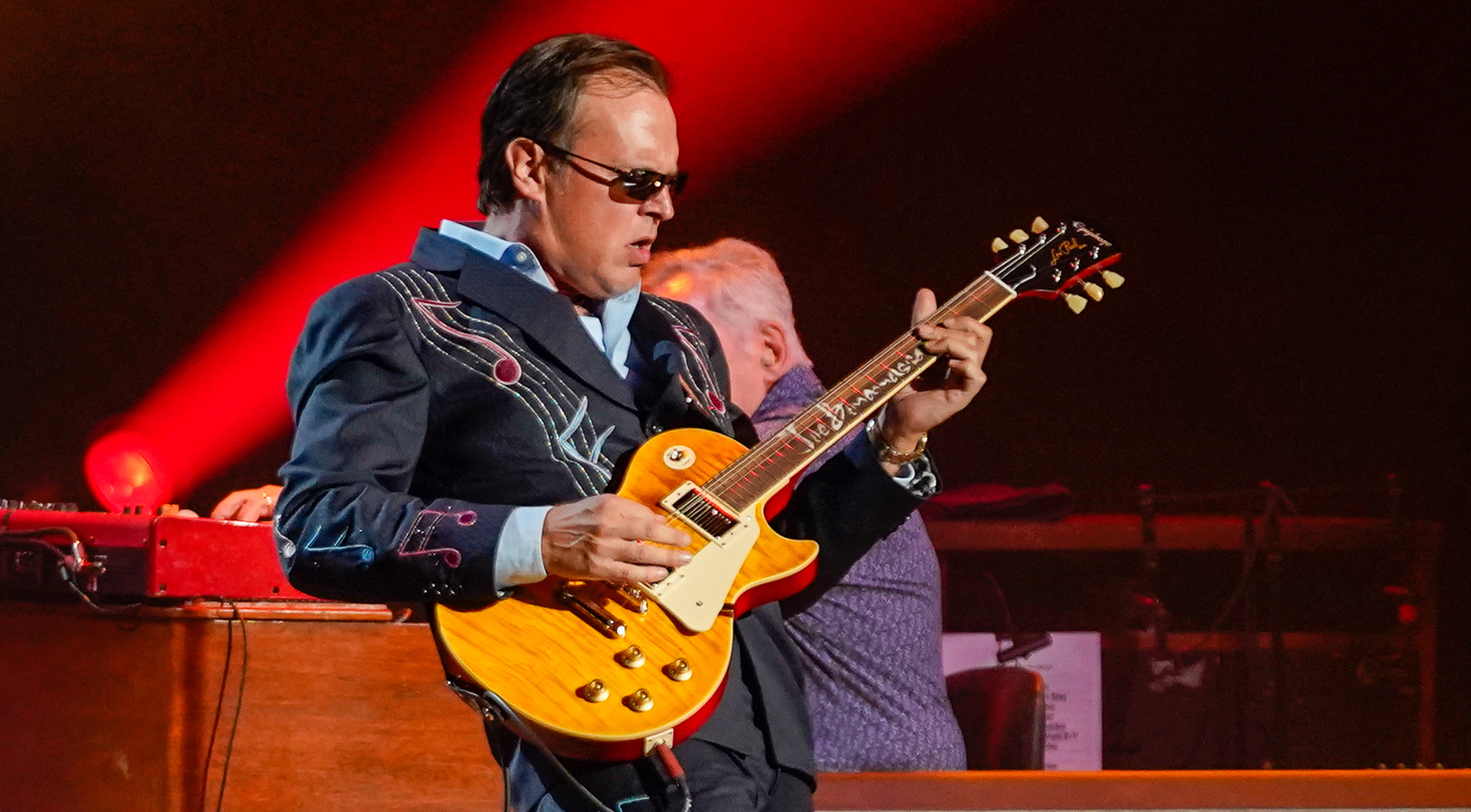
“Let me stick up for my brother here for a bit because it drives me crazy when people attack Joe because of his success. Joe Bonamassa is one of the best guitar players on the planet and a huge champion in pushing the blues forward. But too many people attack him because they don't prefer how he plays compared to people who are more 'traditional', or whatever.
“I can't stand it when people say, 'Oh, that dude can't play,' or 'He doesn't understand the blues.' Those people are full of shit. Joe plays with more heart than anyone. It may be more notes than some prefer, but I've known this guy forever and have worked very closely with him for years – he knows his history as well as me and Kirk do. Joe has listened to the blues, loves it, and is into it.
“So, yeah, his personal sensibility might not be what you like but don't say he can't hack it. And we've all heard the bullshit that he can't play the blues and all this stuff, but it's not true. He puts in so much work, has given away so much of his money for good causes, and does so much for young players and the genre. He's a great musician and a great dude.”
5. Matt Schofield
“Matt is another guy around the same age as me, Kirk, and Joe, and I've known him for a long time. He had a similar upbringing and is a massive Stevie Ray Vaughan fan. All of us around that same age found Stevie and then were pushed to listen to guys like Otis Rush, Albert King, and all those guys that sent us down our paths. But what Matt has been able to do is find his voice to where he's become an incredible improvisational player.
“His style is so melodically fluid, and he spells out every chord through the changes. He has that Stevie Ray Vaughan Strat neck pickup tone, which has much more gain than people realize. And when you play next to Matt, you're like, 'Oh, wow, he's got a lot of sustain going on.' You can really hear that when he gets going, but again, he's so fluid, too.
“He's a player that I really respect, love, and consider a contemporary myself. He's another guy who has done his homework to the point where you can hear the thousands upon thousands of hours that he's put in. And all of that has really taught him how to improvise and find a style that sounds singular to him.”
6. Selwyn Birchwood
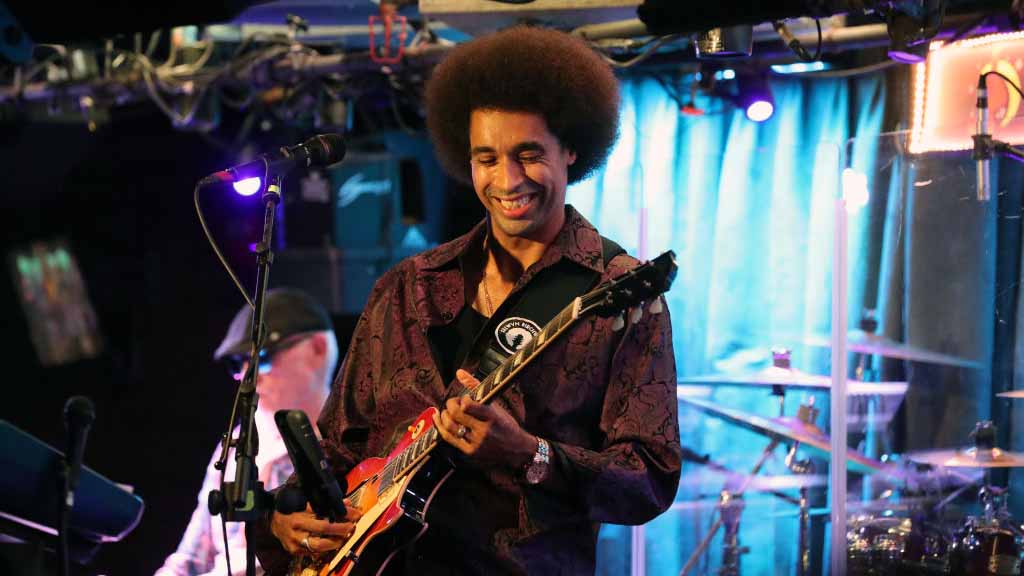
“With Selwyn, aside from his playing and singing, what stands out most to me is that he's a great writer. He works hard to do his unique thing, and he writes songs with passion and a clear idea that they could be ones that someone else might cover down the line. Some are funny, others are in the tradition of great blues songs with double-entendre tunes, but others are very serious.
“So, he's got all that covered. I see him as someone working hard to move the genre forward with good songwriting but doing it in a way that gave the old guys success. What he's doing is important, because moving the genre forward is a big problem right now. I turn on a lot of new blues, and you've got stuff that's played well, but I'm like, 'Man, that's boring.' There's too much stuff about nothing that sounds hollow or has lyrics and playing that are too cliché.
“It's almost like a lot of it is stuff that someone asked AI to generate a generic song about heartbreak or whatever. There's too much out there about nothing, which leaves me thinking, 'Okay… what's the point of even doing it?' I don't get it. What's the point of writing, recording, and releasing a song we already have eight-million versions of? Selwyn is special because he's not doing that. He's clearly taken the time to learn from the true masters and is doing something fresh and new.”
7. Samantha Fish
“I don't know Samantha very well; I've met her a couple of times, but I really like what she's doing. She's someone who has grown a lot. I recently saw her on one of those blues cruises, and I was very impressed with her set to where I was like, 'Whoa, she's grown light years as a singer and writer.' So, I'm very much impressed with her growth.
“I always thought of her as someone with a lot of potential, who could play and sing well and was really into it. But I thought, 'Okay, she's got all that – what will she do next?' And then, I saw her recently, and I was like, 'Wow, wait a minute… she's now putting on a hell of a show.' Her setlist is great. Her band is tight, and she has great dynamics and all kinds of great things happening.
“And then, I saw her again, and she was even further down the line toward growth. So, she's a player who keeps learning and improving by design. She's found who she is and seems to be leaning into that and moving forward with a singular mindset.
“Plus, she can really play and has become a great singer. That comes from great focus and hard work. You don't reach the level she's reaching without working hard to climb the ladder, which really impressed me.”
8. Brandon ‘Taz’ Niederauer

“There's a young guitar player out of New York named Taz Niederauer, who I don't know that well, but has a ton of potential as a player. I met him on one of the blues cruises, and I was mostly impressed with his growth as a player from where he started not too long ago.
“I can kind of see myself in him, where he's someone who sits at the edge of the bed and just keeps playing and growing. It's that sort of drive that I see in him most. The biggest thing that I look for in young players is growth. When I see that they're putting in the work, that's a massive indicator of if they'll be successful.”
9. Joanne Shaw Taylor
“Joanne is someone we've produced a few records for, and she's a close friend. She's incredibly talented. And again, she does her thing. She's not concerned with following trends or copying this or that; she's writing great songs and finding her voice as a player. She has a very interesting thing as a soloist and has a great voice.”
10. Christone 'Kingfish' Ingram
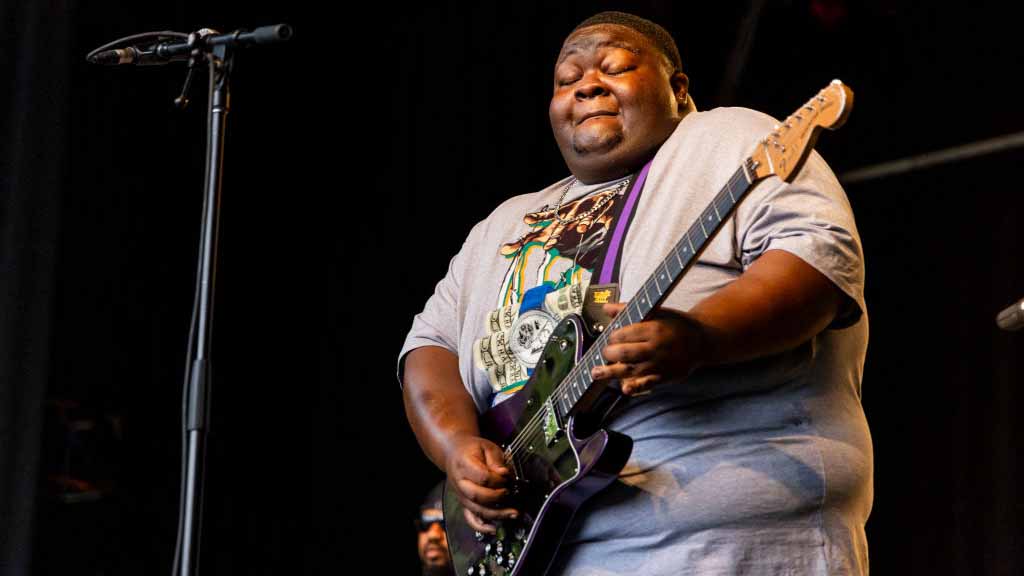
“I love what Kingfish is doing. I love that he's making new fans and impacting young people with the blues. He's a great player. I see him putting in the work, which is great.
“I tell him this every time I see him: 'Hey, dude, I watched some videos that you did recently, and your playing has grown so much in the last year. I hear what you're listening to; keep it up.' It seems like every time I watch him, I hear him doing new things. Like I said, I'm always looking for that growth. He's always had that.”
Andrew Daly is an iced-coffee-addicted, oddball Telecaster-playing, alfredo pasta-loving journalist from Long Island, NY, who, in addition to being a contributing writer for Guitar World, scribes for Bass Player, Guitar Player, Guitarist, and MusicRadar. Andrew has interviewed favorites like Ace Frehley, Johnny Marr, Vito Bratta, Bruce Kulick, Joe Perry, Brad Whitford, Tom Morello, Rich Robinson, and Paul Stanley, while his all-time favorite (rhythm player), Keith Richards, continues to elude him.






